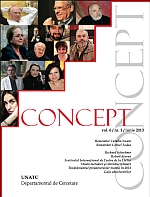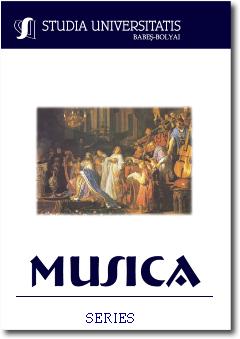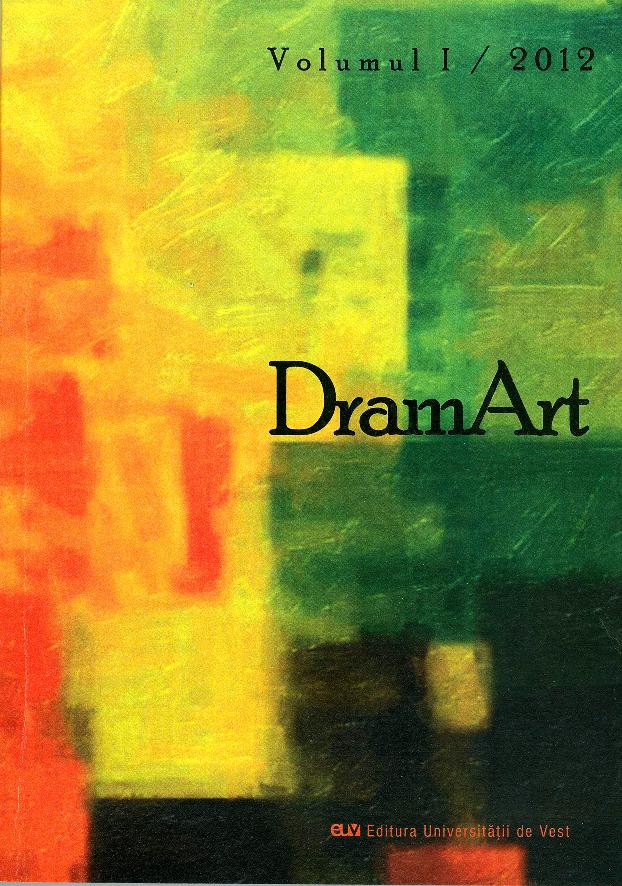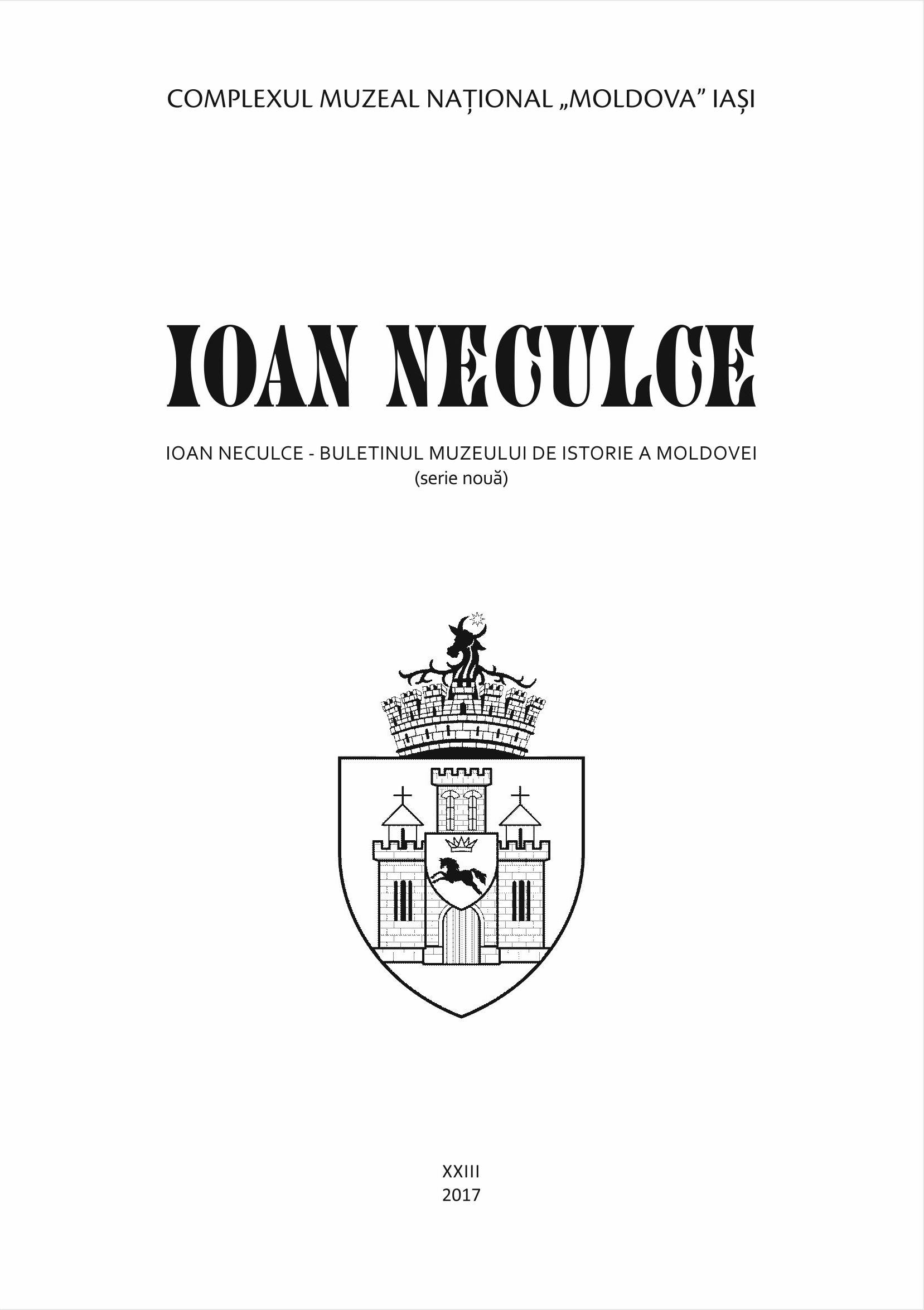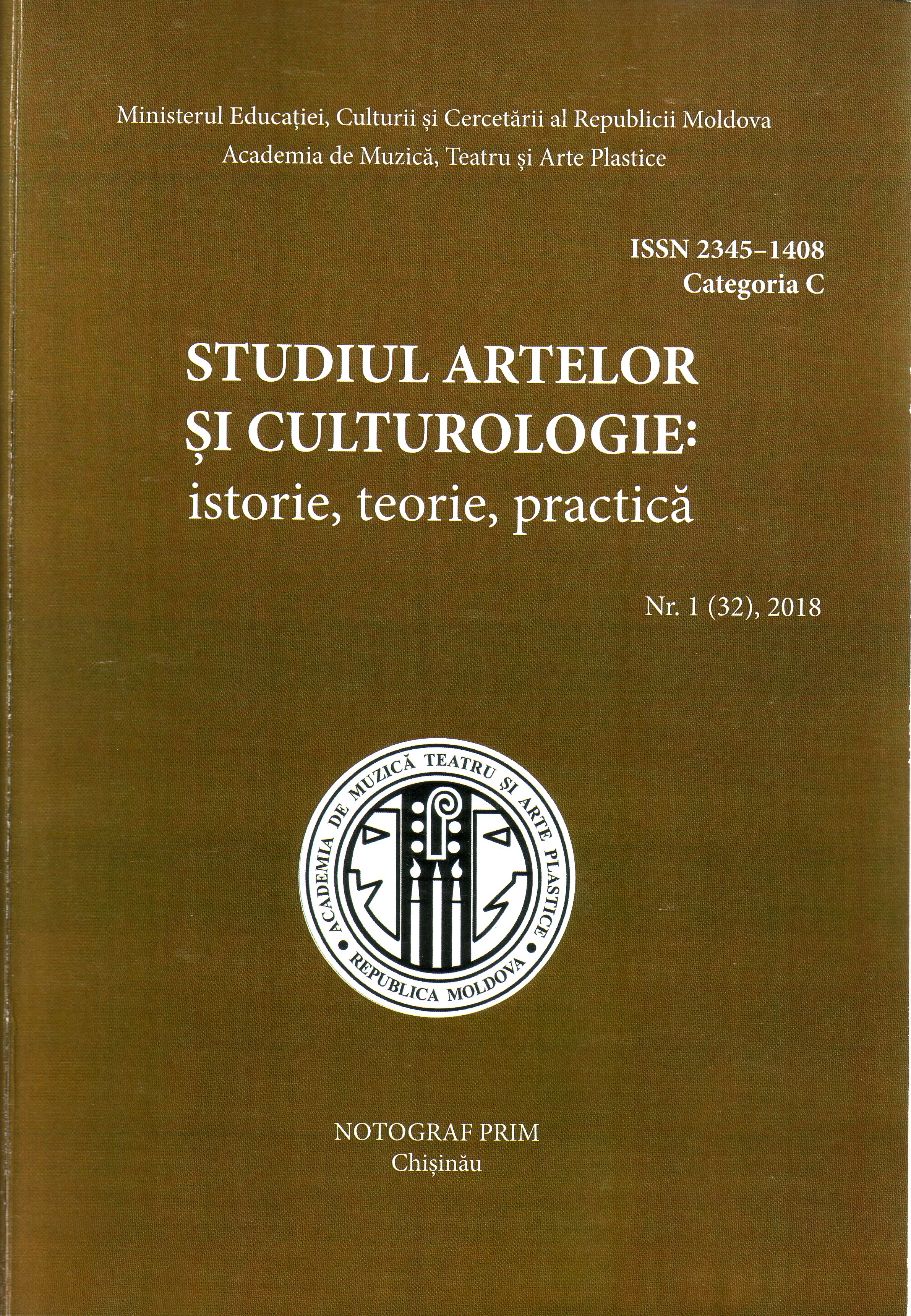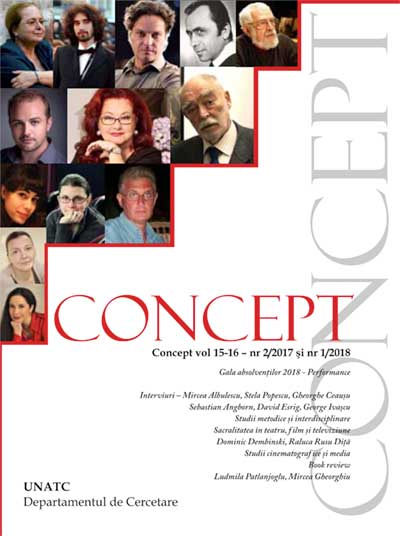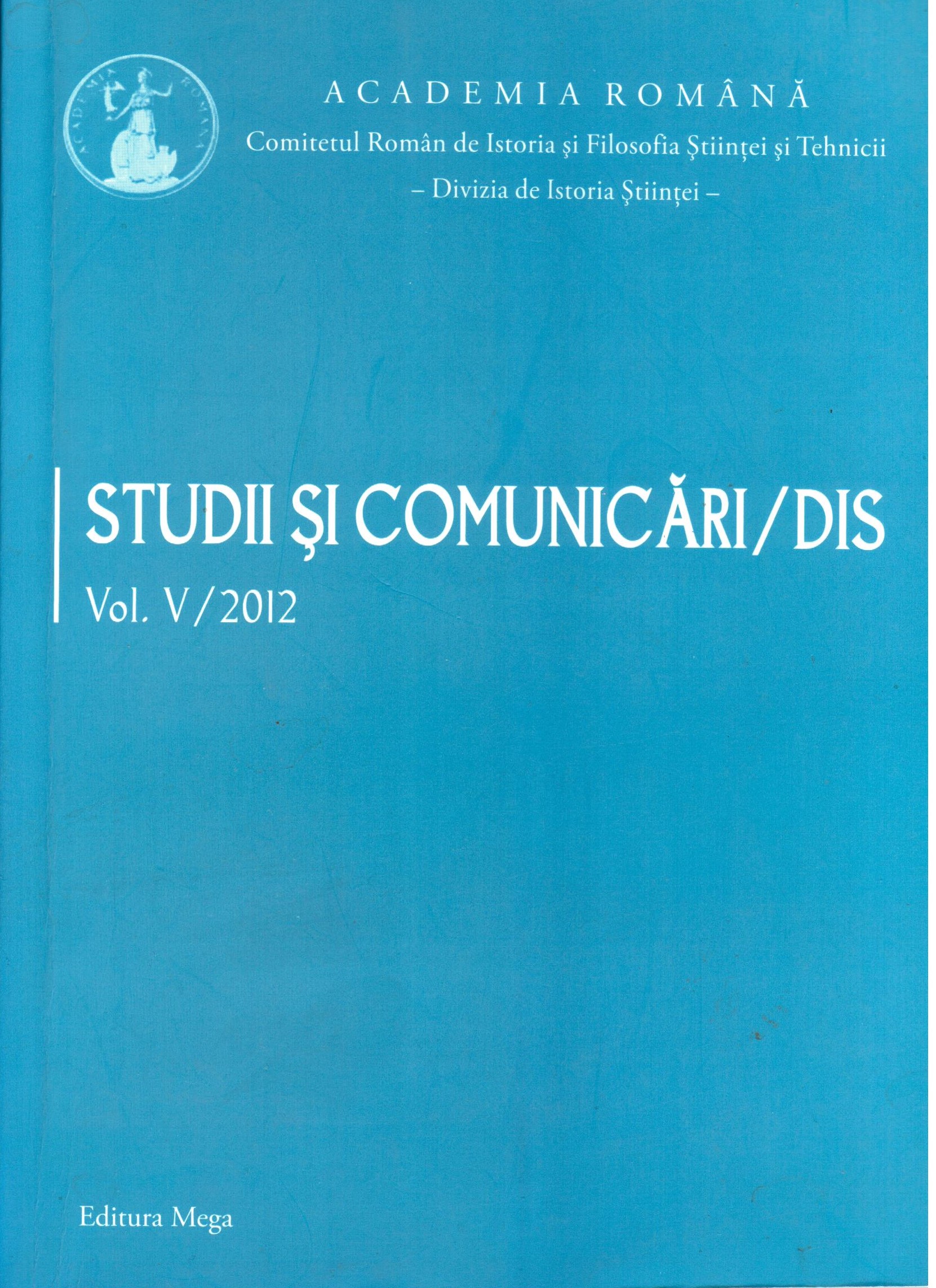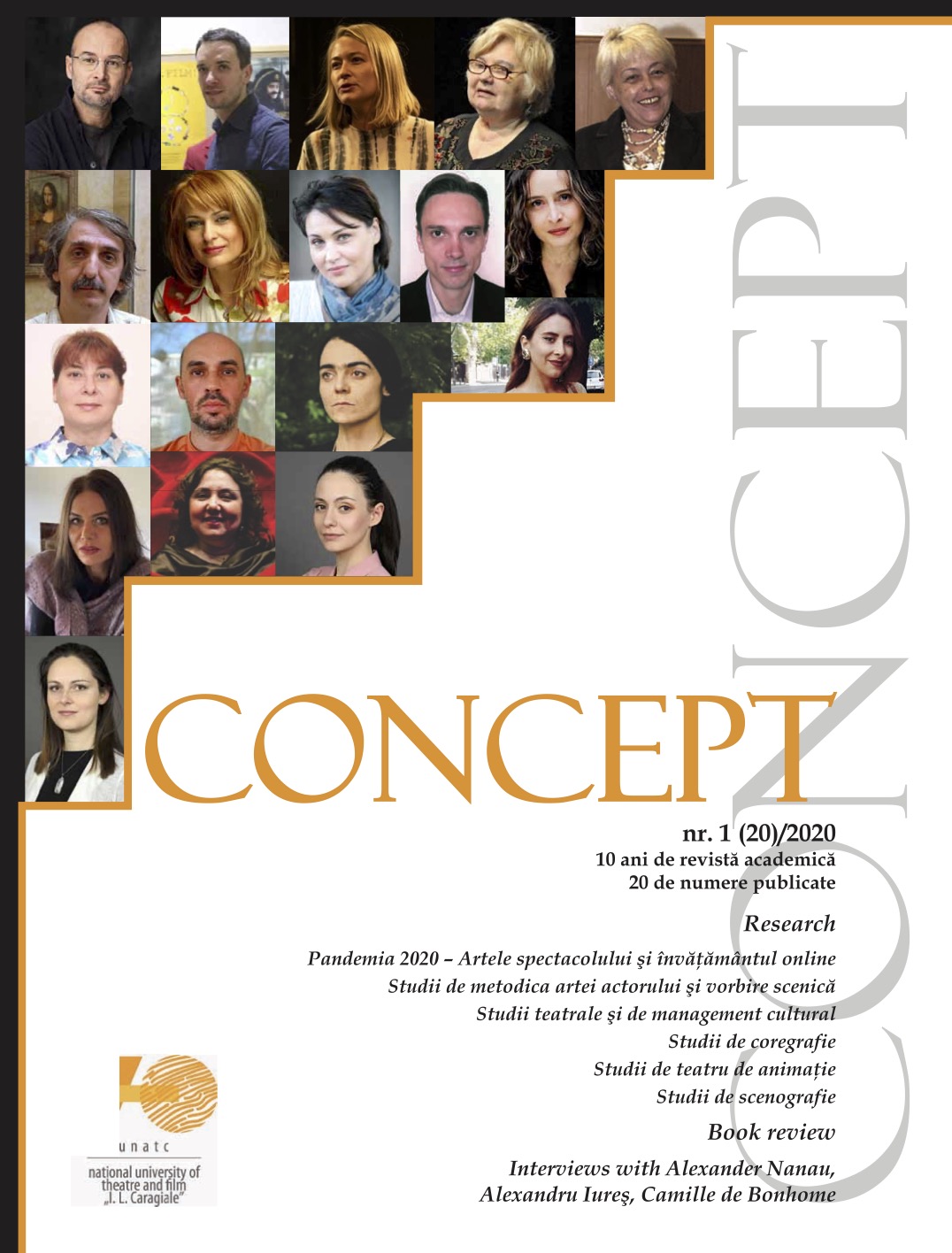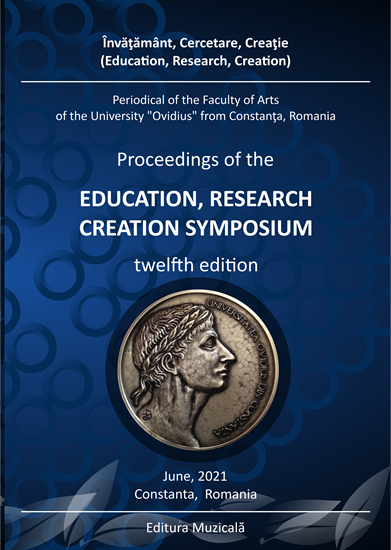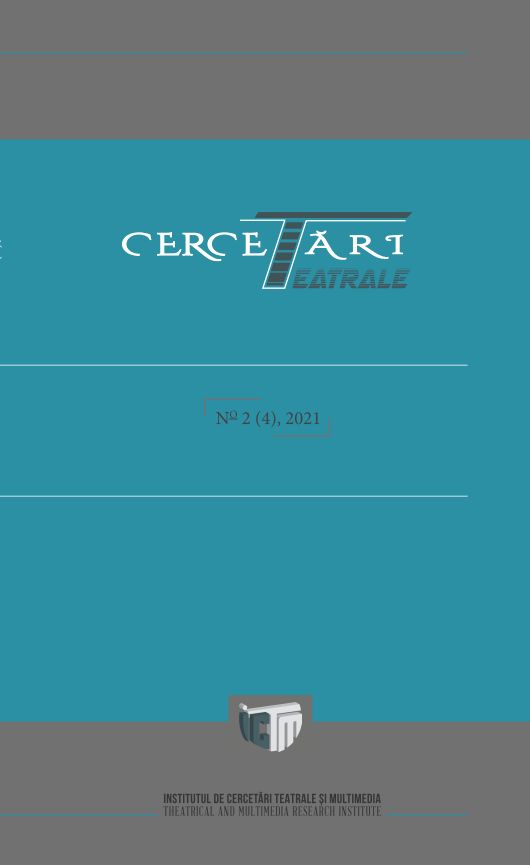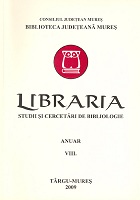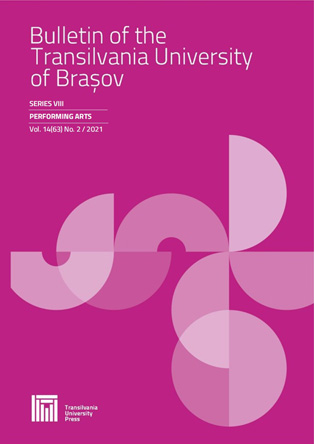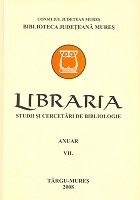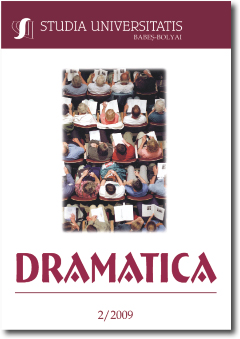
THEATRICAL COMMUNICATION AND THE RECEPTION OF THEATER PERFORMANCES. THEORIES OF RECEPTION.
THEATRICAL COMMUNICATION AND THE RECEPTION OF THEATER PERFORMANCES. THEORIES OF RECEPTION.
Keywords: reception; communication; audiences.
This work proposes a foray into the theories of reception with direct application to the play Krum- Ectoplasm, by Hanoch Levin, directed by Christian Theodor Popescu. Today one can no longer bring up the theory that says theater is not communication. Starting from the point of view of Keir Elam reception theories, this paper tries to identify the ways in which spectatorship is involved in a performance, how much of it is understood, and how the feedback is working, all of this applied on the 2009 romanian performance.
More...
